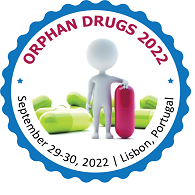
Jean-Michel Scherrmann
Dean
Paris Descartes University
France
Biography
Jean-Michel Schermann is a specialist in the mechanisms of drug transport across the blood-brain barrier. The beginning of Jean-Michel Scherrmann's scientific career in the 1970s was contemporaneous with the rise of radioimmunology, which he applied to drugs and toxic substances, developing polyclonal and then monoclonal antibodies. This method of analysis will open up numerous applications in clinical pharmacology and toxicology, the most significant of which have been the pharmacokinetics of digitalis in the elderly, morphine after intrathecal or epidural administration, and colchicine in its various therapeutic indications and in intoxications acute. These same antibodies will subsequently be used as an antidote to acute poisoning. His main contribution was to succeed in the first application of anti-colchicine antibody Fab fragments in man to treat colchicine intoxication. This clinical success expressed a new scientific message about the ability of an antibody to remotely induce the displacement of a quasi-irreversible intracellular drug . This clinical success has paved the way for immuno-toxicotherapy, which takes advantage of the ability of an antibody to sequester and then eliminate a toxicant. This concept of immunotoxic therapy, Was extended to antivenom treatments, then to cerebral detoxification by tricyclic antidepressant antibodies and abuse drugs such as cocaine. This last area has opened to Jean-Michel Scherrmann the way of an in-depth research on protective mechanisms and passage through the blood-brain barrier. With his colleagues, he establishes the first quantitative proteomic analysis of the main enzymes of metabolism and membrane transporters (in particular the ABC proteins) at the level of the human blood-brain barrier. The functional role of ABC proteins in brain defense mechanisms has been amply illustrated by his team as a source of vulnerability and variability of responses to psychoactive compounds. In the field of exchanges at the level of the blood-brain interface, his team is looking for new strategies for brain addressing of drugs , by coupling to vector peptides recognizing the molecular targets of the blood-brain barrier. Jean-Michel Scherrmann is currently Dean of the Faculty of Pharmacy at the Paris-Descartes University and Director of the Joint Research Unit (Inserm 705 / CNRS 8206) "Neuropsychopharmacology of addictions". The laboratory's scientific project concerns the identification of neurobiological, pharmacokinetic and pharmacogenetic factors of vulnerability and variability affecting addictive behavior, both in terms of exposure to natural and synthetic drugs, and to associated therapies including Treatments with psychoactive substances and substitutes such as methadone and buprenorphine.
Research Interest
Mechanisms of drug transport, Neuropsychopharmacology of addictions,neurobiological, Pharmacokinetic and Pharmacogenetic factors.

